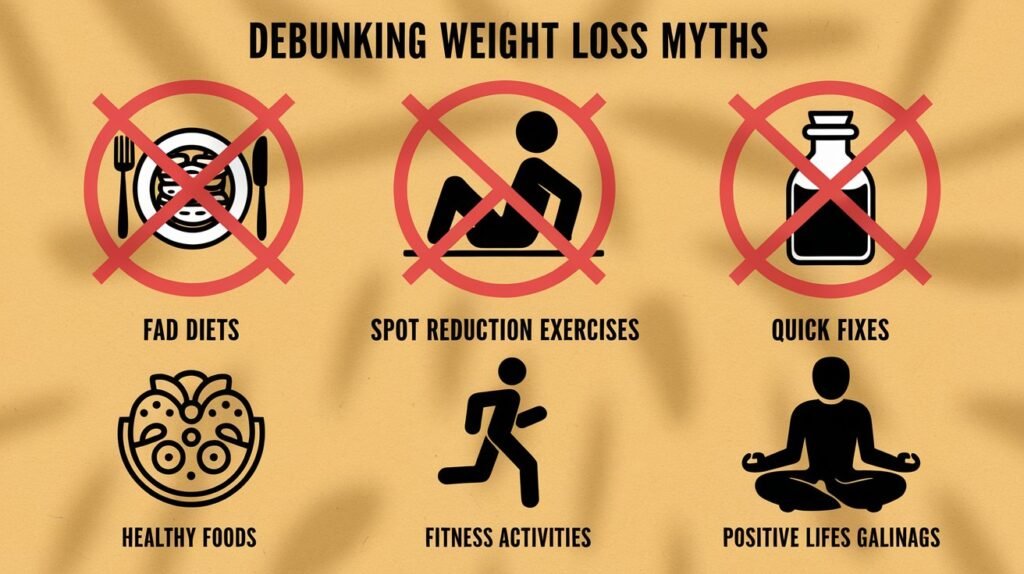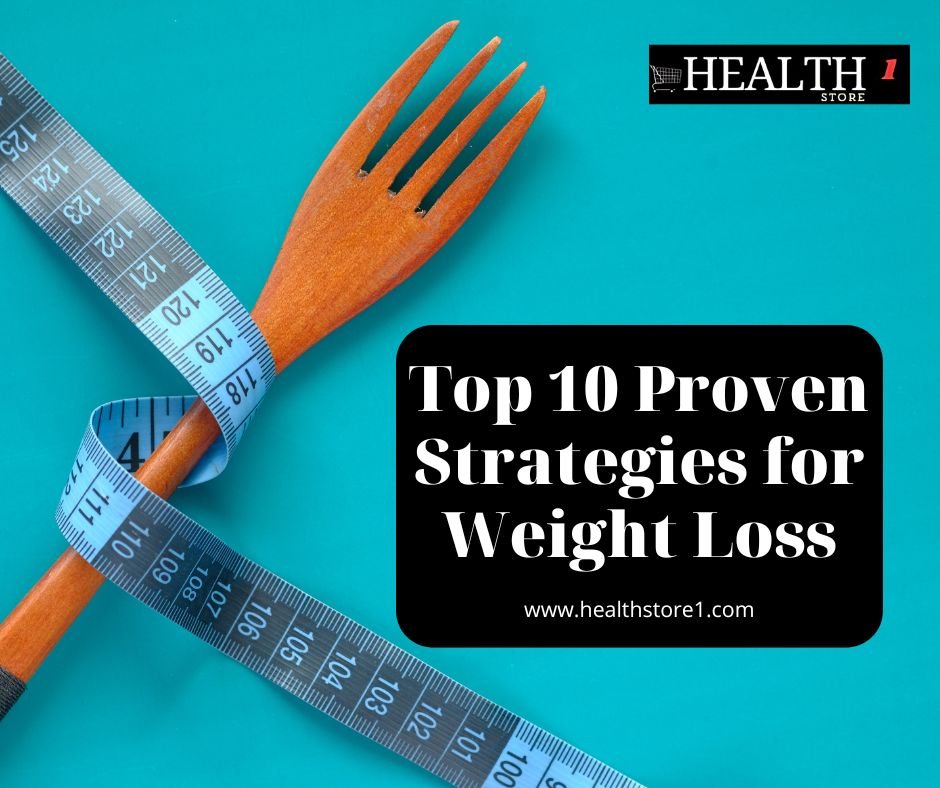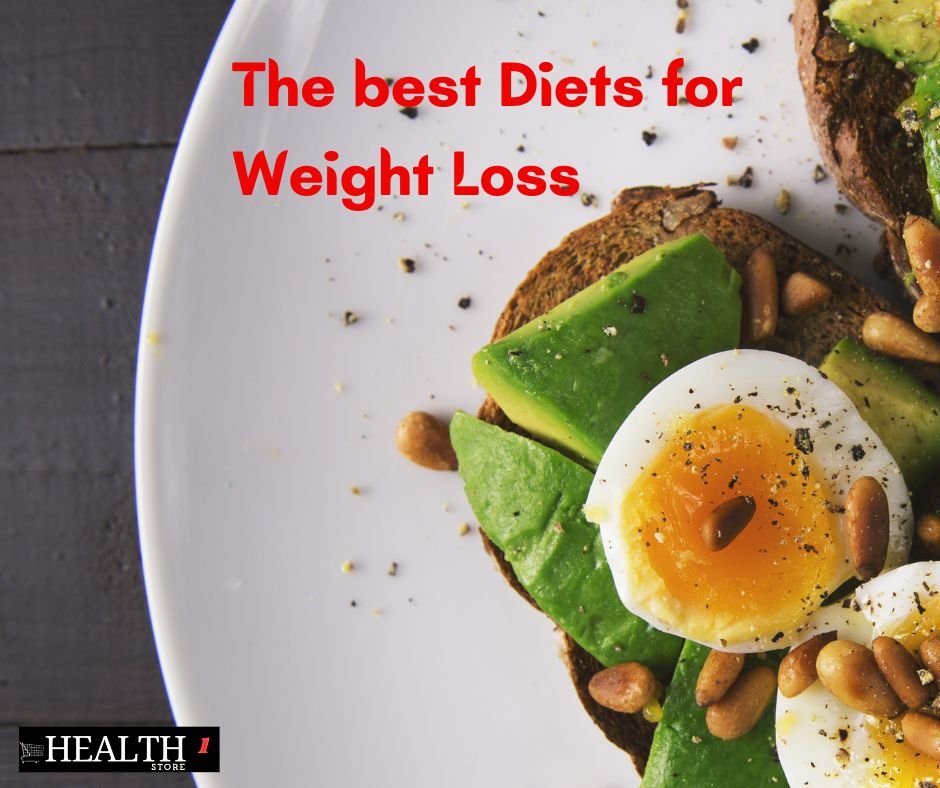Introduction to Weight Loss Myths
Have you ever felt overwhelmed by conflicting advice on how to shed those extra pounds? From “carbs are the enemy” to “just skip breakfast,” the weight loss world is riddled with myths that often leave us more confused than confident. These misconceptions not only derail progress but can also harm our health and well-being.
Understanding the truth behind weight loss myths is crucial for anyone seeking sustainable and healthy results. In this post, we’ll break down some of the most pervasive myths, separating fact from fiction with science-backed insights. Whether you’re starting your journey or looking to refine your approach, this guide will empower you with the knowledge to make informed decisions about your health.
So, are you ready to challenge everything you thought you knew about weight loss? Let’s dive in and uncover the truth.
Table of Contents
Weight Loss Myths

Understanding Weight Loss Myths
When it comes to shedding pounds, there’s no shortage of advice—and unfortunately, no shortage of myths either. But why are weight loss myths so common? Simply put, they often stem from outdated science, oversimplifications, or even clever marketing tactics. As a result, many of us fall for claims that sound too good to be true. Let’s take a closer look at what these weight loss myths are and why they can be so damaging to your weight loss journey.
What Are Weight Loss Myths?
Weight loss myths are misconceptions or false beliefs about how our bodies lose weight. They often promise quick fixes or revolve around rigid rules that ignore the complexity of metabolism, lifestyle, and individual health.
For instance, have you ever been told that eating late at night will always make you gain weight? Or that cardio is the only effective exercise for losing fat? These ideas might seem logical at first glance but are rarely rooted in solid science.
How Weight Loss Myths Impact Your Goals
Believing in these myths can lead to:
- Frustration: You may follow advice that doesn’t work, leading to a lack of results.
- Health Risks: Some myths encourage harmful practices, such as extreme calorie restriction or eliminating entire food groups.
- Wasted Time and Money: Investing in fad diets or ineffective products can set you back financially and emotionally.
Why It’s Important to Separate Fact from Fiction
The truth is, achieving healthy, sustainable weight loss requires an evidence-based approach. By identifying and debunking common weight loss myths, you can:
- Set realistic expectations for your progress.
- Focus on strategies that actually work, such as balanced nutrition and consistent exercise.
- Build confidence in your ability to make informed choices for your body.
So, the next time you hear a piece of advice that seems overly simplistic or too miraculous, pause and ask yourself: Is this backed by science, or could it be just another myth? Recognizing the difference is your first step toward lasting results.
Common Weight Loss Myths Debunked
When it comes to losing weight, some advice has been passed around so often it’s taken as fact. But how much of it is true? Let’s tackle some of the most common weight loss myths that might be holding you back from real progress.
Weight Loss Myths- Myth 1: Skipping Meals Helps You Lose Weight
Ever heard the phrase, “Just skip breakfast if you want to lose weight”? While it may seem logical to cut calories by skipping meals, this approach can backfire.
- Skipping meals often leads to increased hunger, causing overeating later in the day.
- It can also slow your metabolism, as your body tries to conserve energy when it senses a lack of fuel.
Instead, focus on eating balanced meals at regular intervals to keep your energy levels and metabolism steady.
Myth 2: All Calories Are Created Equal
Sure, calories matter when it comes to weight loss, but not all calories are the same. A 200-calorie donut doesn’t provide the same nutrients or satiety as a 200-calorie serving of vegetables or lean protein.
- Quality over quantity: Foods rich in fiber, protein, and healthy fats keep you full longer and support overall health.
- Empty-calorie foods, on the other hand, can leave you feeling unsatisfied and craving more.
Pay attention to what you’re eating, not just how much.
Myth 3: Carbs Are the Enemy
Carbs have gotten a bad reputation, but they’re not inherently bad for weight loss. The key lies in choosing the right kinds of carbs.
- Good carbs: Whole grains, fruits, and vegetables provide essential nutrients and energy.
- Bad carbs: Processed and refined options, like white bread and sugary snacks, can cause blood sugar spikes and cravings.
Instead of cutting out carbs entirely, aim for a balanced intake of complex carbohydrates.
Myth 4: You Can Spot-Reduce Fat
Wouldn’t it be great if we could do a few crunches and lose belly fat? Unfortunately, that’s not how it works.
- Fat loss happens across your entire body and depends on creating a calorie deficit through diet and exercise.
- Strength training and cardio can help build muscle and improve overall fat loss, but they won’t target specific areas.
Consistency is the secret to seeing results—not quick fixes.
Myth 5: Supplements Are a Shortcut to Success
The market is flooded with weight loss pills, but can they deliver? While some supplements may provide a small boost, they’re not a magic solution.
- Real, lasting results come from sustainable changes in diet and lifestyle.
- Be cautious of supplements with bold claims and always consult a healthcare professional before trying them.
Breaking Free from Myths
Understanding these weight loss myths can save you from unnecessary frustration and help you focus on what truly works. When you base your journey on science, not hearsay, you empower yourself to reach your goals more effectively—and with fewer distractions along the way.
Are any of these weight loss myths ones you’ve believed? It’s never too late to unlearn and start fresh.
Science-Backed Insights on Weight Loss
When it comes to losing weight, it’s easy to get caught up in trends and quick fixes. But the truth is, sustainable weight loss isn’t about following the latest fad—it’s about understanding how your body works and using science-backed strategies to achieve lasting results. Let’s explore some proven insights that can make all the difference.
1. The Role of Balanced Nutrition
Ever heard the saying, “You can’t out-exercise a bad diet”? It’s true. Nutrition plays a pivotal role in weight loss.
- Focus on whole foods: Prioritize fruits, vegetables, lean proteins, and whole grains for a nutrient-dense diet.
- Watch portion sizes: Even healthy foods can contribute to weight gain if eaten in excess.
- Limit processed foods: High-sugar and high-fat options often lead to overconsumption without providing lasting energy.
By building your meals around balance and variety, you set the foundation for long-term success.
2. How Exercise and Diet Work Together
Many people wonder: is exercise or diet more important for weight loss? The answer lies in combining the two.
- Diet controls calories: Reducing calorie intake creates the calorie deficit needed for weight loss.
- Exercise builds muscle: Strength training increases muscle mass, which boosts metabolism and helps burn more calories even at rest.
- Cardio aids fat loss: Activities like running, swimming, or cycling burn calories and improve heart health.
Together, diet and exercise form a powerful duo for achieving and maintaining a healthy weight.
3. The Importance of Metabolism and Hormones
Your metabolism isn’t just about how fast your body burns calories—it’s influenced by several factors, including hormones.
- Understanding metabolism: Factors like age, muscle mass, and activity level impact your metabolic rate.
- The role of hormones: Hormones like insulin, cortisol, and leptin play a critical role in hunger, fat storage, and energy balance.
- Boosting metabolism naturally: Regular strength training, adequate protein intake, and consistent sleep can help.
By paying attention to these elements, you can create a weight loss plan that works with your body, not against it.
4. Why Consistency Beats Shortcuts
It’s tempting to look for quick fixes, but science tells us that steady, consistent progress is far more effective.
- Crash diets don’t last: Rapid weight loss often leads to muscle loss and rebounds in weight gain.
- Small changes add up: Adopting simple habits, like drinking more water or walking daily, can lead to significant results over time.
- Patience is key: Sustainable weight loss is about long-term changes, not overnight transformations.
By focusing on consistency, you can create habits that support your goals and keep the weight off for good.
Empower Yourself with Knowledge
The science behind weight loss is clear: balanced nutrition, regular activity, and understanding your body’s unique needs are the keys to success. With these insights, you can move past the weight loss myths and embrace a healthier, more sustainable approach to weight loss.
So, what’s the next step? Start small, stay consistent, and trust the process—your body will thank you.
Spotting and Avoiding Weight Loss Misinformation
In today’s digital world, it’s easier than ever to come across “advice” on weight loss. But not everything you read is backed by science or tailored to your well-being. Learning to recognize weight loss myths can save you time, money, and frustration while keeping your health intact. Let’s dive into how you can spot the red flags and steer clear of unreliable advice.

1. Red Flags of Weight Loss Misinformation
Before trusting any weight loss claim, ask yourself: does it sound too good to be true? Here are some common warning signs:
- Promises of rapid results: Claims like “Lose 10 pounds in a week!” are not only unrealistic but often unsafe.
- No effort required: Be wary of products or programs that suggest you don’t need to change your diet or exercise habits.
- One-size-fits-all solutions: Everyone’s body is unique, and what works for one person may not work for another.
- Overuse of buzzwords: Terms like “detox,” “superfood,” or “miracle pill” are often used without scientific backing.
Trustworthy advice will focus on realistic, sustainable strategies—not quick fixes.
2. Where to Find Reliable Weight Loss Information
With so much noise online, how can you find credible resources?
- Look for reputable sources: Websites like the World Health Organization or Mayo Clinic often provide accurate, evidence-based information.
- Seek expert opinions: Registered dietitians, certified trainers, and healthcare providers are your best bets for personalized advice.
- Check for research backing: Legitimate claims should reference peer-reviewed studies or credible scientific research.
The more you dig into the source, the better you can determine its reliability.
3. How to Evaluate Weight Loss Products and Programs
Not all weight loss programs or products are scams, but some can be misleading. Here’s how to evaluate them:
- Review ingredients and safety: Check for FDA approval or consult a healthcare provider to ensure safety.
- Read the fine print: Look for disclaimers like “results may vary” or “in combination with a healthy diet and exercise.”
- Beware of testimonials: Real results require more than glowing reviews from unverified users.
Being informed protects both your health and your wallet.
4. The Impact of Social Media on Misinformation
Social media can be a double-edged sword for weight loss guidance. While it connects you to fitness communities and experts, it’s also a breeding ground for false claims.
- Question influencer endorsements: Many influencers promote products for financial gain, not because they work.
- Spot edited content: Unrealistic before-and-after photos or heavily filtered images can distort expectations.
- Use trusted platforms: Follow verified accounts or organizations that consistently share science-backed tips.
Always approach social media content with a critical eye.
5. Staying Empowered Against False Claims
Here are some proactive steps to avoid being misled:
- Ask questions: If a claim sounds dubious, don’t hesitate to dig deeper or seek clarification.
- Stick to science: Focus on evidence-based practices like balanced eating, regular exercise, and gradual progress.
- Prioritize your health: Remember, weight loss should enhance your well-being—not jeopardize it.
A Smarter Way Forward
Avoiding weight loss misinformation doesn’t mean ignoring all advice; it means being selective about what you trust. By staying informed and skeptical of unverified claims, you can focus on strategies that genuinely work and align with your goals.
The next time you come across a too-good-to-be-true promise, ask yourself: is this helping me, or just selling me something? You have the tools to make the right call!
Building a Sustainable Weight Loss Plan
When it comes to weight loss, quick fixes rarely last. The key to long-term success is creating a plan that fits your lifestyle, supports your health, and keeps you motivated. Let’s explore how to build a sustainable weight loss plan that works for you.

1. Focus on Nutrition, Not Restriction
Weight loss isn’t about starving yourself; it’s about nourishing your body. Here’s how to approach your diet:
- Prioritize whole foods: Include fruits, vegetables, lean proteins, and whole grains in your meals for balanced nutrition.
- Mind portion sizes: Learning to control portions helps prevent overeating without cutting out your favorite foods.
- Avoid crash diets: Extreme restrictions may lead to quick weight loss but often result in yo-yo dieting.
- Listen to your body: Pay attention to hunger and fullness cues to avoid emotional eating.
Remember, healthy eating isn’t a temporary fix; it’s a lifelong habit.
2. Incorporate Regular Exercise You Enjoy
Exercise shouldn’t feel like a punishment. The secret is to find activities that you genuinely enjoy, making it easier to stick with them:
- Mix it up: Combine cardio (like walking or cycling) with strength training to maximize calorie burn and build muscle.
- Start small: Even 20 minutes a day can make a difference. Gradually increase the intensity as you build endurance.
- Make it social: Join a class or exercise with friends to stay motivated and have fun.
- Set realistic goals: Aim for consistency over perfection. Celebrate small wins along the way.
Physical activity not only aids in weight loss but also improves your mood and overall health.
3. Set Achievable and Measurable Goals
Setting goals can keep you focused, but they need to be realistic:
- Break it down: Instead of “lose 50 pounds,” set smaller milestones like “lose 5 pounds in a month.”
- Track your progress: Use a journal or an app to monitor your food intake, workouts, and weight changes.
- Celebrate non-scale victories: Improved energy levels, better sleep, and looser clothing are all signs of progress.
A sustainable plan is about long-term habits, not short-term outcomes.
4. Address Mental and Emotional Health
Weight loss isn’t just physical—it’s mental too. Addressing your mindset can prevent burnout and frustration:
- Practice self-compassion: Understand that setbacks are normal. What matters is getting back on track.
- Identify triggers: Recognize stressors that lead to overeating and find healthier coping mechanisms.
- Stay motivated: Keep a list of your reasons for losing weight and revisit it often to stay inspired.
A healthy mind is the foundation of a sustainable lifestyle.
5. Embrace Flexibility and Patience
No plan is perfect, and that’s okay! Building a sustainable routine requires flexibility:
- Allow for treats: Enjoying occasional indulgences helps prevent feelings of deprivation.
- Adapt as needed: Life changes, and so should your plan. Modify your approach based on what works best for you.
- Be patient: Sustainable weight loss is a marathon, not a sprint. Progress may be slow, but it’s steady and lasting.
Putting It All Together
A sustainable weight loss plan combines balanced nutrition, enjoyable exercise, realistic goals, and a focus on mental health. The best part? It’s tailored to your needs and lifestyle, making it easier to stick with for the long haul.
Take it one step at a time, celebrate every victory, and remember: consistency beats perfection every day of the week. You’re not just losing weight—you’re building a healthier, happier you.
Conclusion: Breaking Weight Loss Myths
As we wrap up this exploration of weight loss myths and how to build a sustainable plan, it’s clear that achieving your goals requires more than just the latest fad diet or the newest workout trend. It’s about understanding the truths behind common weight loss myths and making small, sustainable changes to your lifestyle that fit your unique needs.
Have you ever caught yourself wondering if there’s a quick fix for weight loss, or if you’re simply destined to struggle with your weight forever? The good news is, there isn’t a one-size-fits-all solution, but there is a path forward that blends science with practicality. Whether it’s debunking myths, recognizing misinformation, or adopting new habits that truly work, the journey to better health is a personal one.
Remember, weight loss isn’t just about shedding pounds; it’s about gaining confidence, improving your overall well-being, and fostering a healthier relationship with food and exercise. By focusing on long-term goals rather than short-term fixes, you can create a sustainable plan that supports your health, not just in the here and now, but for years to come.
So, what will your next step be? Will you start by challenging the weight loss myths you’ve always believed, or perhaps reevaluate how you approach your diet and exercise routine? Whatever it is, embrace the process with patience and a positive mindset. Because every step you take toward your goals, no matter how small, is a step in the right direction.
In the end, it’s not just about losing weight—it’s about gaining a healthier, more balanced life. Keep moving forward, and remember, you’re not alone in this journey. The knowledge and tools are all here; the choice is yours to make.
References
National Institute of Diabetes and Digestive and Kidney Diseases (NIDDK) – Provides valuable resources on weight loss, including weight loss myths, diet plans, and exercise recommendations.
- https://www.niddk.nih.gov/health-information/weight-management
Mayo Clinic – Offers expert advice on weight loss myths, healthy eating, and the role of exercise in achieving and maintaining a healthy weight.
- https://www.mayoclinic.org/healthy-lifestyle/nutrition-and-healthy-eating/expert-answers/weight-loss/faq-20057957
American Heart Association (AHA) – Discusses the importance of a balanced diet and the truth about common weight loss myths.
- AHA: weight loss myths
Centers for Disease Control and Prevention (CDC) – Provides evidence-based guidance on healthy weight management and busting common weight loss myths.
- https://www.cdc.gov/healthyweight/index.html
- Journal of the Academy of Nutrition and Dietetics: “Adherence to Weight Loss Diets: A Comparison of Dieting Choices and Weight Outcomes” by Deborah J. Tate, Ph.D.



